Erin Decker holds a BA in Political Science and International Studies (Global Security) from the University of Wisconsin-Madison. After completing SRAS’s Translate Abroad program in 2009, she went on to find employment as a translator and editor in Moscow and has lived there since.
SRAS: You are currently an analyst-level editor for Equity & Fixed Income Research at Renaissance Capital. First, for the layman, can you explain what Renaissance Capital does and what exactly you do for them as an analyst-level editor?
Erin Decker: Renaissance Capital is an investment bank focusing on emerging markets, such as Russia, Eastern Europe, Central Asia and Africa. It offers a wide range of financial products and services, everything from selling and trading of equities to emerging markets research to mergers and acquisitions. As an analyst-level editor, I work within the bank’s equity and fixed income research department and am responsible for editing the research that is distributed to the firm’s client base. This can include everything from industry-specific equity research reports to production reports on individual companies in these emerging markets. This role differs from that of simply an editor in that it requires knowledge of the financial markets in order to be able to understand, edit and, to some degree, even fact-check the information contained in the analysts’ reports. The company’s general editors would be responsible for editing, for example, the company’s newsletters, quarterly journals and other PR-related materials addressed to a broad public audience. However, an analyst-level editor needs to have some background in finance to be able to understand the technical aspects and jargon used in the equity and fixed income research reports that are written specifically for the bank’s clients.
SRAS: You have spent now several years in Russia working up to this position. Have you always planned to make a career in Russia? What first got you interested in the country?
ED: I had not initially planned to make a career in Russia. I clearly remember the first thing that got me interested in the country was a jarring article I read in a back issue of The Atlantic that my sister had given me, an article bluntly entitled “Russia Is Finished.” Up until then, I knew next to nothing about the country, but became very intrigued by this attention-grabbing article which portrayed post-Soviet Russia as a corrupt former superpower that had been brought to its knees, a lawless “Wild East” now being run by organized criminals. I read this article right after I had been accepted to UW-Madison and was choosing my first semester of undergraduate courses. My curiosity was piqued, and I signed up for my first semester of Russian language and tried to focus my political science coursework on Russia, and it just kind of snowballed from there.
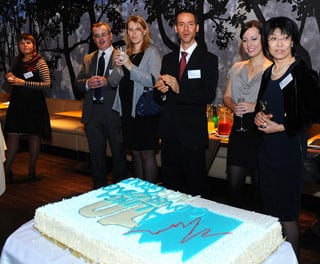
SRAS: You started your current long-term stay in Russia as a student on SRAS’s Translation Abroad Program. How did you find out about this program and why did you choose to sign up?
ED: After graduating college, I began to get frustrated with my inability to find work in the US that could somehow incorporate my Russian language skills. I slowly began to realize that I may have to look for career opportunities back in Russia, which I was initially hesitant to do. I had studied abroad in St. Petersburg for an academic year during my undergraduate studies, and while I found the experience invaluable, I also knew that life was tough in Russia and I was in no hurry to pack up and go back there again. However, after some time went by, I realized that I was ready for such a challenge and began looking for some sort of work-study or internship opportunity online. SRAS’s Translation Abroad Program stood out to me because the internship portion of the program was designed for someone who already had a high level of Russian. Since I had already studied Russian for five years, finished college and was looking mainly to get professional experience with Russian language on my resume, it seemed like the best option for me. I also liked the idea of improving my Russian skills on a professional level by translating specialized material involving business, economic, and legal vocabulary, which this program could offer.
SRAS: Upon completion of that program, you were hired as an in-house translator with Alinga Consulting Group, the company that you did that translating for while on the Translation Abroad Program. You eventually became the Marketing Manager for Alinga – with the additional tasks of translating and even managing other translation interns placed in the company by SRAS. First, can you describe the logistical process of converting from being a student to being a professional in Russia? What was involved in terms of switching your visa and housing situation?
ED: SRAS’s Translate Abroad program definitely made this transition much easier than it would have been had I tried to do it on my own.
Alinga had prior experience hiring foreign staff, so they took care of the process of getting the work visa and work permit for me. Although I had to gather all sorts of documents from my end in order to process the documents (such as an apostilled university diploma and all sorts of medical tests), they definitely guided the entire process, which can be overwhelming to say the least, if the company does not have prior experience. I later had to take charge of this process myself when I joined a Russian firm that had never hired a foreigner before, and it was a logistical nightmare that dragged out for nearly six months before the work visa and permit were ready (the process should normally take about two months).
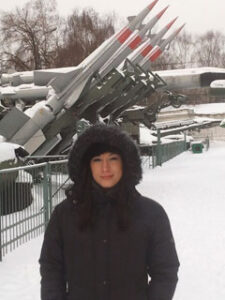
During my internship phase, I had lived at the dormitories at Moscow State University since I was on a student visa. When I switched to a work visa, I had to find an apartment on my own. Since rent is so high in Moscow, apartments are usually shared between two or more people, but there are lots of websites where people post ads looking for roommates. I quickly found a flatshare online and rented a room from a Russian woman. Logistics in terms of housing can be fairly simple, since not all landlords require you to sign a contract for a fixed lease term and take rent payments in cash only each month, as was the case with my first shared apartment. However, finding the trifecta of affordability, good location, and pleasant roommate(s) from what’s on offer at the time you need to move is quite a challenge, and from my experience, you usually have to sacrifice at least one of these elements or move several times before finding a place that you’re comfortable at for the long-term. I moved twice more after that before finding such a place, so you may have to make some sacrifices when you first start out here.
SRAS: Second, would you say that your experience with Alinga was a good way to “enter the Russian market” and prepare you for what you want to do professionally?
ED: Absolutely. Beginning with the internship was an excellent way for me to become familiar with Russia’s business environment and also become acclimated to life in Russia again in general. Luckily, I had spent almost a year in Russia before so I had a general feel for how things operate here. However, if someone who had never been here before were seeking to start a career here – for example, straight out of university – I would say that they should definitely do such a program rather than try to move here on their own with no connections and no idea what the Russian job market was like. Although I had advanced Russian skills when I began the internship, being a professional translator still requires training and it is not something one can automatically do just by virtue of knowing a foreign language. The real skill is making the translation sound as natural in the target language as it does in the source language. Novice translators often need to be trained to avoid using overly-direct, literal translations when they do not sound natural in the target language. It is a difficult balancing act between maintaining accuracy and the original meaning of the text or phrase in the source language with the ability to finesse it to sound as if it were originally written in the target language. Luckily, I was provided with direct feedback on each piece of work that I did during my internship phase so that I was able to see the areas of my work that needed improvement and was able to rather quickly advance to the level of a professional translator.
SRAS: You have since advanced through other jobs with increasing levels of skill and responsibility. How did you find out about the position at Renaissance? What was involved in applying for and landing that job?
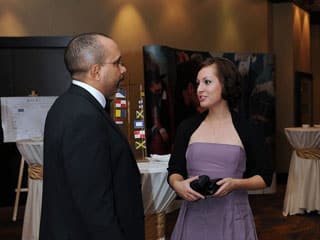
ED: Renaissance found me. A recruiter from a Russian headhunting agency contacted me about the position, as is sometimes the practice with some of the larger companies here that do not necessarily post their vacancies online. The application process took a couple of months and was much more extensive than for any of the other positions I had held up until that point. I edited several sample research pieces for them to test my skills and interviewed with about five different department heads and managers within Renaissance who were based all over the world. So I had a few face-to-face interviews in Moscow, one via videoconferencing in London, and a couple more over the phone with some of their staff in Eastern Europe/Central Asia. After finally making a verbal offer to me, I had to provide a complete personal background history for the past ten years – contact information and references for every single previous employer, every address I had ever lived at, etc. – for a third party agency to conduct a background investigation on me. This took another several weeks, but after this was completed, I received a written offer and employment contract to sign. However, I would not say this is the norm in Russia. My application process was likely a bit more thorough and extensive because Renaissance is such a large company, as well as the fact that in my position I would be dealing with information that only the bank’s clients were allowed access to, so they needed to make sure they would be hiring a trustworthy employee.
SRAS: You are also involved with National Language Service Corps, a group attached to the US government. What does that organization do, what do you do for them, and how did you become involved with them?
ED: I originally found out about NLSC through SRAS. The SRAS website posts useful links to employment opportunities and other such programs, and I came across a posting there about NLSC looking for volunteer linguists. Basically, they keep a database of on-call linguists who are willing to volunteer their translating or interpreting services during times of need or crisis to various US government agencies. For example, after a natural disaster hits the US in an area where there is a significant immigrant population, linguists may get called in to assist FEMA with disaster relief efforts by facilitating communication with these populations who may not speak English. Most of their linguists are based in the US and deployed within the US, but they also maintain a cadre of volunteers overseas, such as myself. I have not yet been called up for an assignment, but if and when I do, I’m sure it will be an exciting and interesting experience.
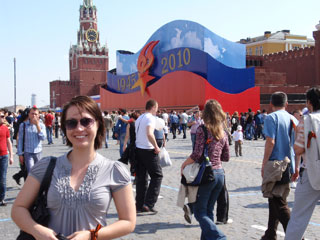
SRAS: What is the most interesting Russia-related experience you’ve had to date?
ED: It would be hard to pinpoint only one experience I’ve had here that stands out as the most interesting over everything else. However, taken as a whole, I’d have to say that the past three years of advancing up the career ladder here in Moscow have been the most interesting years of my life thus far. That being said, I sometimes wish I could experience coming to Russia for the first time all over again, being able to experience that mixture of excitement and fear, and being immersed in something totally new and foreign. Despite how scary and different Russia was to me when I first came here, like all things, you simply get used to it and it just becomes a way of life, like anything else. I sometimes wish I could experience those feelings of awe all over again, before everything became “business as usual.” However, as routine as my life in Moscow sometimes feels right now, I still encounter those peculiarities of Russian life and culture often enough to give me little reminders of those feelings that I experienced when I came here for the very first time – for example, on a boring, every day morning commute, the metro doors open and an entire platoon of uniformed Army officers steps onto your train, or seeing your normally stone-faced, sombre Russian co-workers drink, sing, dance and shamelessly let loose at your office Christmas party the way few, if any, Americans ever would. I like encountering such reminders that I am still living in a unique culture, and that I should never take that for granted.
SRAS: What advice do you have for other young Americans who are looking to build a Russia-related career?
ED: I would say that the most important part of trying to build a career in Russia is to be aware of and able to deal with the difficult aspects of Russian society and its business culture. Anyone who is not aware of the differences in the way business is done here and expects things to happen exactly as they do in the US or other western societies is going to become very frustrated very quickly by the bureaucracy and seemingly arbitrary and irrational rules and regulations and business practices in place here. Being able to get over this hurdle is half the battle. However, if you can do this and if you are willing to put yourself out there and be proactive about making a career for yourself in Russia, anything really is possible here. I directed my career down avenues that I never imagined it would go and advanced quickly because I was willing to take on extra responsibility and did not hesitate to take advantage of opportunities that were in fields that were new to me. While the work environment here can be daunting, I have found that Russians will more often than not give you a chance to prove that you can succeed in a position that you may not have much prior experience in as long as you exhibit a genuine willingness to work hard and express confidence that you are up for the challenge. I really value this aspect of the business culture here and the amount of opportunities that are available to those who are motivated to take advantage of them. This has been an integral part of how I was able to establish myself in Russia’s business community and advance so quickly.
More From Translators from the Field
(Included current article)

Adam Fuss: Translating Russian Communications
Adam Fuss has worked as a freelance writer, editor, translator, and communications professional for over eight years. Prior to establishing ABF Communications in early 2008, he worked on a series of assignments in Moscow, Russia as a writer and translator for several high-profile global corporate communications projects. He holds a graduate degree from Georgetown University’s School of Foreign Service. […]
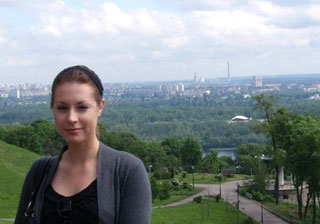
Erin Decker: Translation, Editing, and Advancement in Russia
Erin Decker holds a BA in Political Science and International Studies (Global Security) from the University of Wisconsin-Madison. After completing SRAS’s Translate Abroad program in 2009, she went on to find employment as a translator and editor in Moscow and has lived there since. SRAS: You are currently an analyst-level editor for Equity & Fixed Income Research at […]
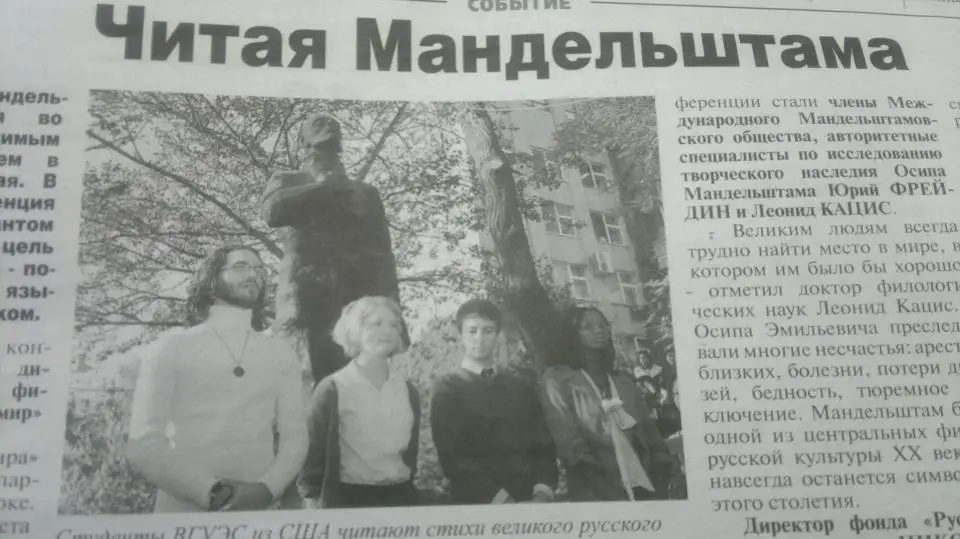
Translating Mandelstam in Vladivostok
One of the things that I enjoy about the Vladivostok State University of Economics and Service is how the Russian language department there is always trying to involve the international students in cultural events. Whether it’s a weekend trip to an archeological dig site, or a visit to the theater to see a movie about […]
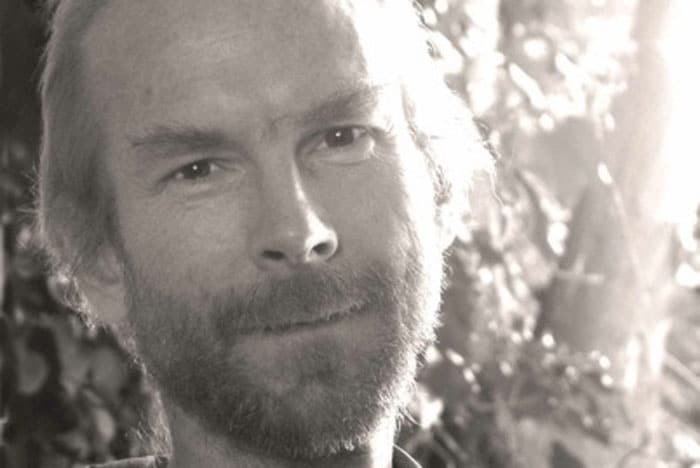
Robert Chandler: Translation as a Career and a Love
Robert Chandler graduated with a BA in Russian and English Literature from Leeds University. His translations from Russian include Vasily Grossman’s Life and Fate and Everything Flows, Leskov’s Lady Macbeth of Mtsensk and Aleksander Pushkin’s The Captain’s Daughter. His co-translations of Andrey Platonov have won prizes both in the UK and in the USA. His translation of Hamid Ismailov’s The Railway […]
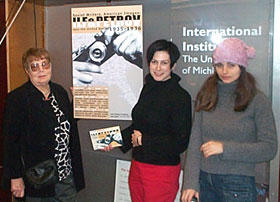
Anne Fisher: Translation and Interpreting as Professions
Dr. Anne Fisher holds a Ph.D. in Russian Literature from The University of Michigan. She has taught Russian in several institutes of higher learning and is now a professional translator and interpertor living in California. Her first major translation, Ilf and Petrov’s American Road Trip: The 1935 Travelogue of Two Soviet Writers, was shortlisted for the […]
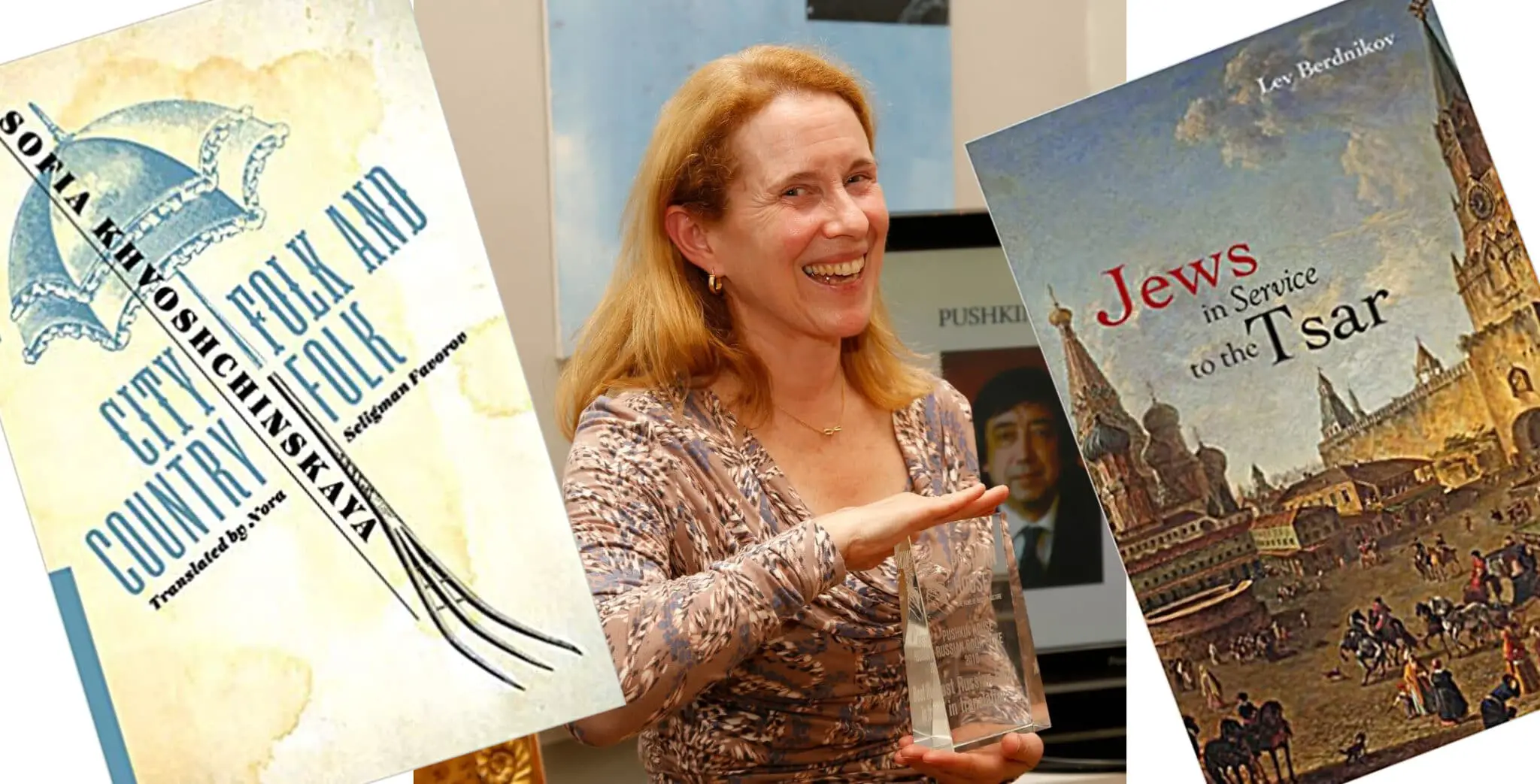
The Accidental Translator: Interview with Nora Favorov
Nora Favorov is a freelance, professional translator working in the Russian>English market and is an active member of the American Translator Association. She recently took some time from her piles of manuscripts to talk about how she came to work in her profession and what it’s like to work in a profession that often must bridge art […]
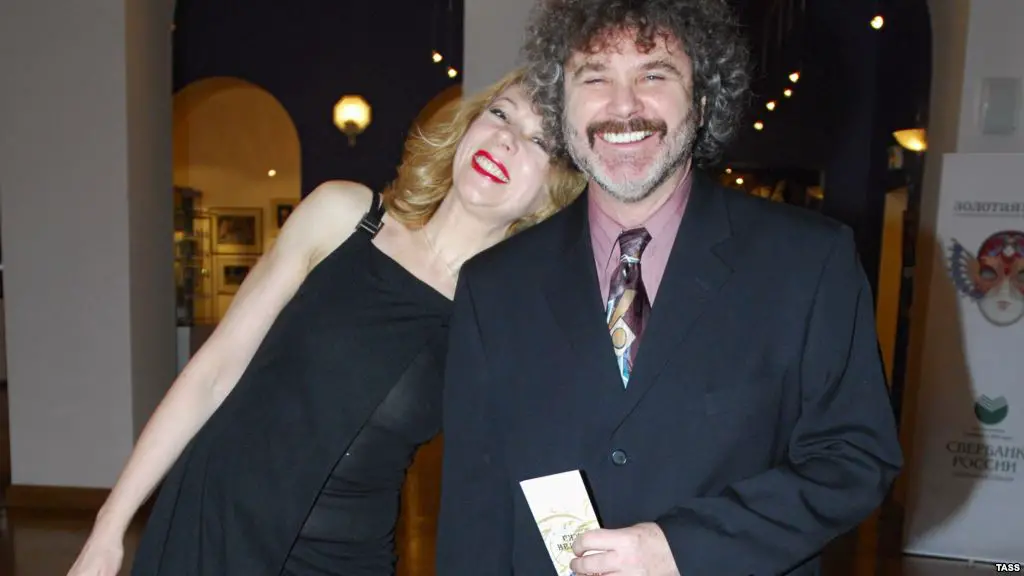
John Freedman: Man of the Newspaper, Theater, etc
John Freedman first came to Moscow in 1988 to research his dissertation for a Ph.D in Russian Literature. He found out a lot. He also found a woman he loves and some incredible professional and personal opportunities. He is now an editor for Moscow’s largest English-language newspaper, a published author and translator, and has been […]





